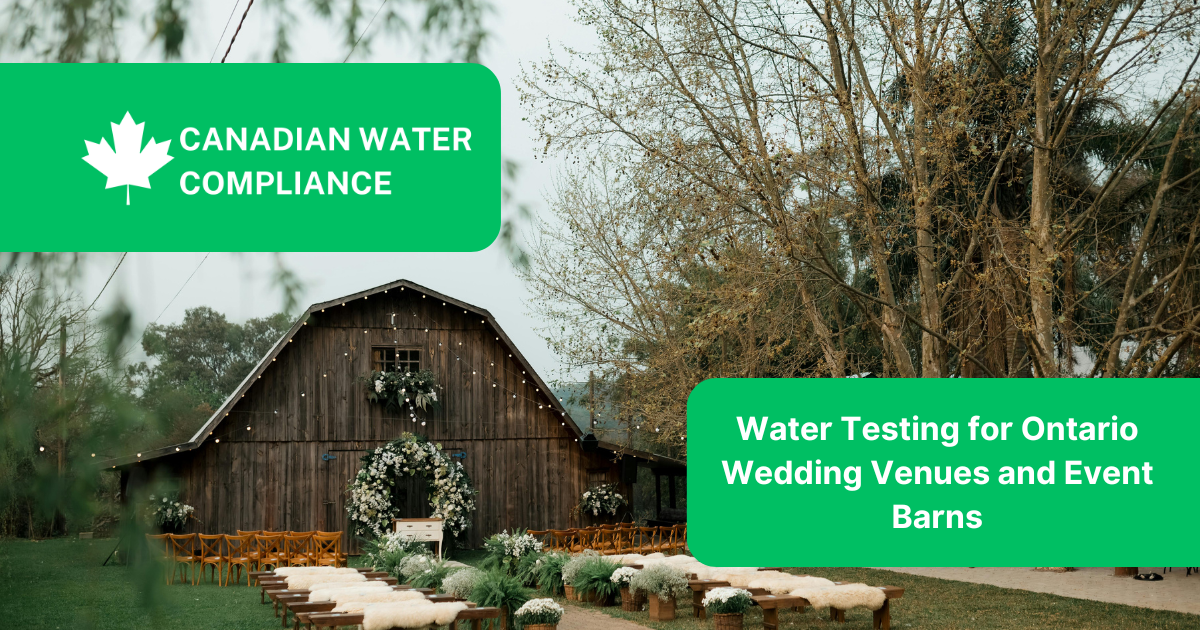
Written By: Canadian Water Compliance | On
Across Ontario, rustic barns, vineyards, and countryside estates have become popular venues for weddings and private events. While these rural spaces offer a unique and memorable setting, many operate with private water sources—placing them under different health and safety obligations than urban venues.
If your venue has restrooms, bar service, food prep areas, or accommodations for guests, and you're not connected to a municipal water system, you may be operating a Small Drinking Water System (SDWS) under Ontario Regulation 319/08.
Here's what owners and operators of seasonal event venues need to know about water testing, legal obligations, and how to keep guests safe while staying compliant.
Under O. Reg. 319/08, your venue is classified as an SDWS if:
You provide water from a private well, cistern, or surface water source
That water is made available to the public (i.e., guests, staff, or vendors)
The venue includes washrooms, kitchens, showers, or food and drink service areas
This applies even if the venue operates seasonally or part-time, such as from May to October.
If your venue qualifies as an SDWS, you are legally required to:
Submit to a Site-Specific Risk Assessment (SSRA) by your local Public Health Unit
Conduct biweekly microbiological testing for E. coli and Total Coliforms during your operating season
Perform annual chemical testing (e.g., nitrates, sodium, pH)
Maintain logs of system flushing, disinfection, and any corrective actions
Post Boil Water Advisories (BWAs) immediately if contamination is found
These requirements are mandatory, and failure to comply can result in fines, public health orders, or reputational damage if guests become ill.
Even if your venue doesn't serve drinking water directly, you may still be affected if you use on-site water for:
Dishwashing or food prep in a catering kitchen
Coffee machines, ice makers, or bar service
Washing linens, dishes, or glassware
Showers in bridal suites or guest accommodations
Each of these use cases can introduce health risks if the water isn’t regularly tested and treated.
If a sample exceeds safety limits for bacteria or chemicals:
The Public Health Unit will issue a Boil Water Advisory
You must inform guests and stop serving tap water for consumption
Bottled water and signage may be required during events
Follow-up testing and system disinfection must occur before clearance is given
Failure to act could expose your business to legal liability and negative publicity.
We work with seasonal venues, event planners, and property owners across Ontario to simplify the compliance process by offering:
Certified water sampling and lab testing for all required parameters
Risk assessments and coordination with Public Health Units
Testing plans aligned with your event season
Emergency sampling in case of a failed result
Clear documentation for inspections, insurance, or client peace of mind
Whether you're hosting a dozen events or one every weekend, we’ll make sure your water is safe—and your venue stays legally compliant.